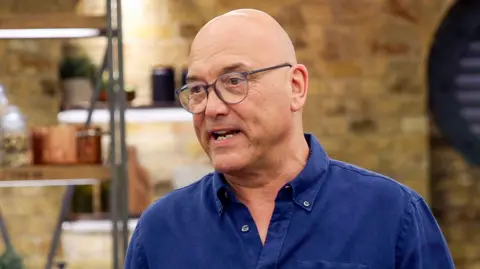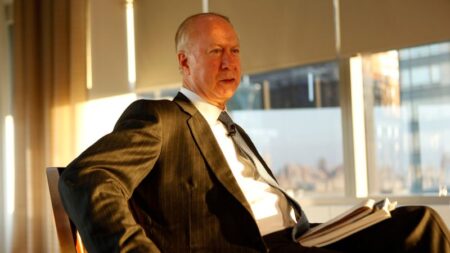In a recent controversy, former **MasterChef** host **Gregg Wallace** has ignited substantial criticism from various charities and organizations dedicated to supporting individuals with disabilities. The backlash emerged after Wallace appeared to associate allegations of misconduct he is facing with his newly diagnosed autism. Allegations against him include inappropriate sexual comments, touching, and groping, accusations that he unequivocally denies.
In a statement made to the press earlier this week, Wallace defended his actions, claiming he faced numerous difficulties as a result of his autism, which he revealed he had just been diagnosed with. He suggested that television executives failed to consider his disability and did not protect him from what he perceives as a dangerous work environment he had endured for over two decades. This controversial defense has incited outrage among disability advocacy groups, prompting reactions indicating that autism should not be seen as an excuse for inappropriate behavior. One prominent charity stated explicitly that autism is “not a free pass for bad behavior,” cautioning against comments that could inadvertently perpetuate negative stereotypes surrounding the autistic community.
The unfolding story has garnered significant attention, as further investigations have revealed that Wallace has faced allegations from roughly 63 individuals. This situation escalated following an initial BBC News inquiry, which saw 13 individuals coming forward with claims against him. The allegations predominantly focus on inappropriate sexual conduct. Additionally, the inquiry has been conducted by an independent law firm on behalf of the production company behind **MasterChef**, **Banijay**.
In his public statements, Wallace noted the toll this tumultuous period has taken on him, claiming that the narrative around his neurodiversity was already speculated upon by colleagues across previous seasons of **MasterChef**. He expressed his frustration over the lack of investigation into the environment he worked in. Notably, Wallace also expressed his intention to pursue legal action against the BBC and the production company for discrimination pertaining to his autism diagnosis.
Notably, many individuals within the autistic community, including disability consultants and advocates, have challenged Wallace’s suggestion that his autism could somehow mitigate his alleged misconduct. These professionals argue vehemently that autism does not exempt anyone from adhering to social norms and appropriate behavior. The founder of **Blind Ambition**, **Seema Flower**, articulated that there can’t be room for excuses for inappropriate conduct in society, questioning what precedent it sets if autism is used to justify such behavior. Similarly, advocacy representatives and professionals have echoed this sentiment, emphasizing that being autistic does not absolve an individual from accountability or the ability to differentiate between acceptable and unacceptable behavior.
In the public discourse surrounding this issue, several voices on platforms like **BBC Radio** have expressed concern over how Wallace’s comments might reinforce harmful stereotypes about autistic individuals. Some callers have even sympathized with Wallace, indicating that he may have lacked the necessary support to navigate his career responsibly.
As the situation unfolds, given the extensive weight of allegations against him and his current actions, the public awaits the outcome of the ongoing investigations. Wallace’s comments, both online and through interviews, serve as a reflection of broader societal attitudes towards neurodiversity, disability, and accountability. The press scrutiny, combined with public opinion, amplifies the conversations around mental health, the responsibilities tied to behaviors in the workplace, and how individuals navigate personal challenges in a professional context.
As he seeks to clear his name, the upcoming report from the independent inquiry will likely play a crucial role in determining both Wallace’s future and the implications of his actions on the discourse surrounding autism in the media and public perception.










